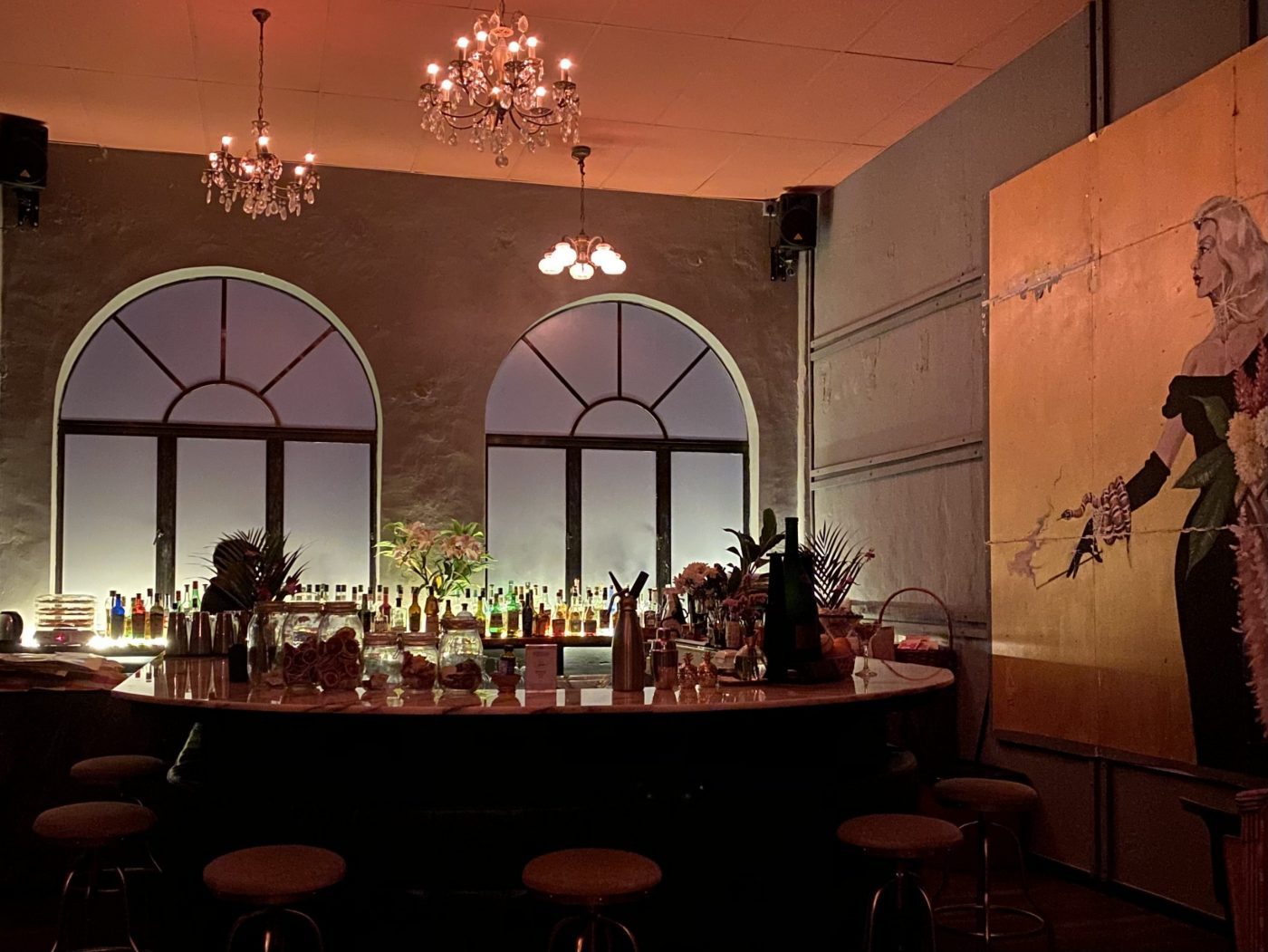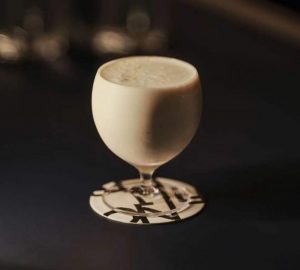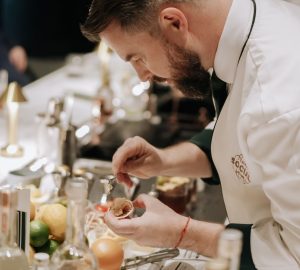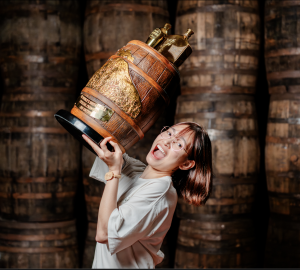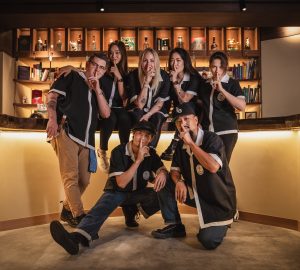Alicia Mak, founder of Atas Speakeasy in Ipoh, Malaysia, shares how her team has adapted in an onslaught of lockdowns.
We have just started to reopen, but since March 18, 2020, Malaysia has been in lockdown of different phases. It’s affected us in so many ways, many of which are no different to what has been happening in other countries all over the world. Businesses both big and small have been drastically affected and many have tried to stay relevant, while others have since closed – especially bars. Some business owners are learning and adapting, making sure their businesses survive by introducing e-commerce in the form of online orders and deliveries as the main platform to continue serving their guests. Providing hospitality to an extent in the comfort and safety of their guest’s own home.
Understanding and learning the process required a great deal of perseverance for the team, and we had very little time to adapt. We had to go through a crash course teaching ourselves e-commerce, while reading and understanding experiences from international cocktail bars who were going through the same dilemma.
By participating in online interviews, live sessions and Zoom discussions, the internet proved a useful tool during lockdowns for bars like us to pick up pointers and directions if we were going to take e-commerce seriously as a new source of revenue. There were many factors that came into play and the decision to launch our online delivery required a strong online presence.
Almost overnight, the team had to undertake photo taking sessions and design posters and electronic marketing materials for our social media. We updated frequently on all channels to try and get the word out, and hoped the spread would ease our transition from a physical venue to a virtual one. We even went as far as to create Zoom sessions for our local community to drink our cocktails together and catch up during the first lockdown.
Bottling and packaging our experience was very challenging. As a go-to venue for our local community during celebrations and gatherings, the idea of selling the experience regulars were used to as a bottled cocktail in their own home sounded unviable initially. From running R&D sessions to ensure that everything was delivered at the same quality in terms of taste, dilution and presentation, to the final product at home which included garnishes, the process was indeed challenging.
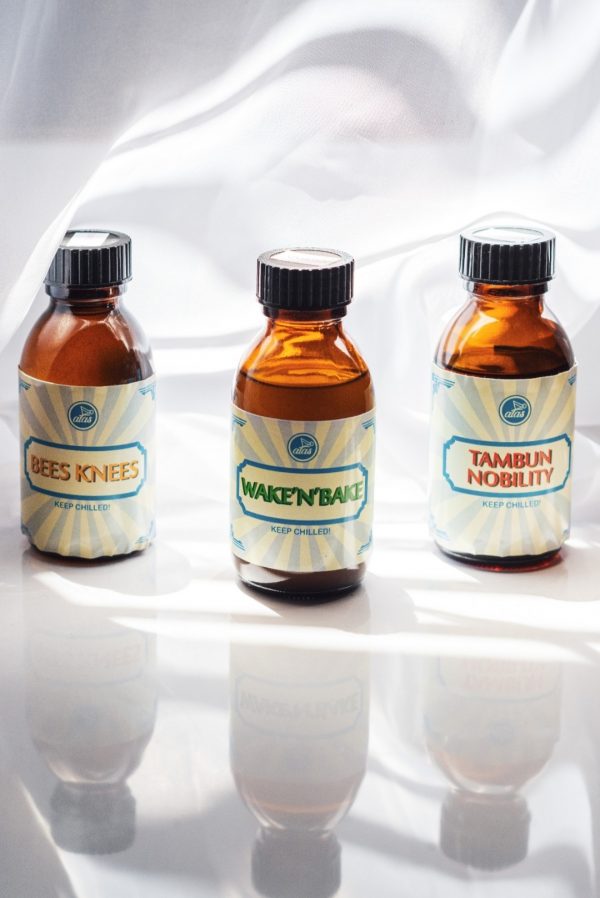
Every detail was considered: the designing, sourcing of the right vessel and printing of labels and even making sure we kept single use plastics to a minimum was a priority. After observing a rise in online deliveries during the pandemic, the F&B industry was certainly a big contributor in unsustainable approaches and packaging. Incorporating a bottle exchange and rebates was another move we took to reduce our footprint on the environment. To complete the Atas experience at home, we included the compulsory in-house complimentary bar snacks – the local muruku – in packs to be included with every cocktail purchased.
One big factor that concerns many business owners is price. Operators could no longer charge the same amount for takeaways as they did during dine-in. What was once a full-service venue for the local community to socially gather and pamper themselves was being transformed into something virtual. For us, it was a make or break factor in our attempt at e-commerce. To gain the confidence of our customers at the initial launch of the delivery program, we had to run at a loss to stay relevant while the nation was getting used to staying at home as a new norm.
Eventually, over three months, our local community embraced the culture of drinking at home and many were sending our packages to friends and family as gifts during the lockdowns. Many of our regulars had families stranded in other states and with this, we saw a surge in our online sales as many saw the service we provided as a means to connecting with loved ones throughout the pandemic.
This opened a whole new market for us: specialty gifting packages. Some were corporate but many were personal and with their demand, our team managed to put together many variants for birthdays, anniversaries, celebrations and festivals. Enquiries poured in from all over the country and eventually we were even doing bespoke arrangements for our clients. Catering to virtual bachelor parties, to baby announcements, first time dads and graduations, our team was blessed to be given the opportunity in working with other local small businesses.
We had the chance to include bakers, florists, gift houses and dessert parlours in our offerings, giving us young entrepreneurs the chance at exchanging ideas and strategies together. This really helped keep our spirits up during the whole downturn of the pandemic, encouraging and motivating each other and our individual businesses, helping each other in every way we could. With this initiative, we saw our network grow with new business owners being included.
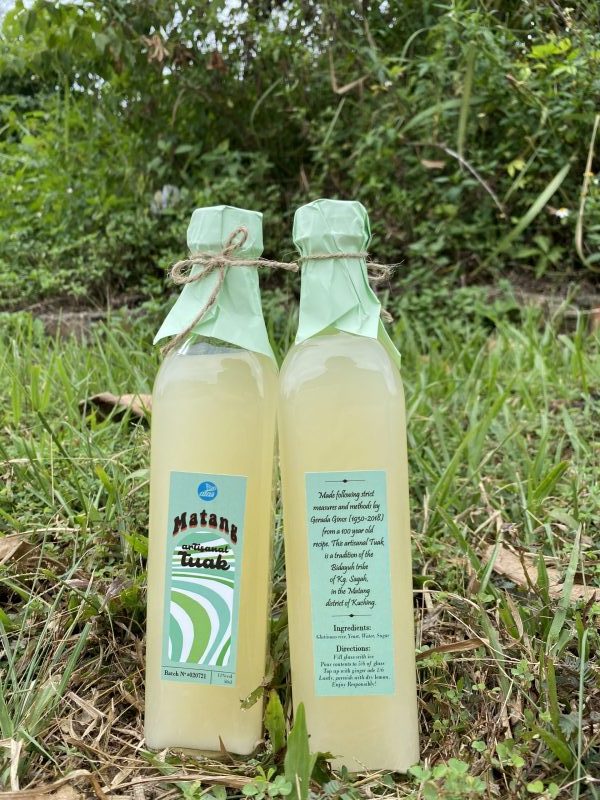
Fast forward to 2021, where we are still undergoing lockdowns and e-commerce has been a stable – though not comparable to dine-in – source of income to cover the basic expenses, even though we have not been allowed to open doors physically. And as the months went by, we were meeting regular requests for other items on our in-house menu to be made available on our deliveries menu. Due to the demands of our local community, we successfully launched our tuak (Borneo rice wine) earlier this year, and we have been sending them to states all over Malaysia. Made in limited batches every month, the fermentation and bottling takes place at our own venue and is delivered with mixers and garnishes to the doorsteps of our clients.
Logistics was the final hurdle in the learning process of e-commerce. Over time, we came to realise how certain packaging methods were unsuitable when delivering out of state, or when items like desserts or pastries required special care in order to be presentable when served at home. With these factors involved, being selective with courier companies was becoming a necessity and over time, the list narrowed down to only a handful. Deliveries by our actual team over couriers was also a priority and as far as we could, the team would handle as many deliveries as possible, which in some way meant we could deliver the same hospitality in the form of a familiar face.
Moving on this year, we cannot help but hope that dine-ins are permitted as soon as herd immunity has been achieved. And while the entire learning experience of e-commerce, adapting and practicing the knowledge has been fun and exhilarating, not one business owner can deny the fact that dining-in is the soul of the hospitality industry. The drive to see the smiles on the faces of all our customers is what keeps everyone in the struggle since March 2020 and many of us refuse to give up.
We will constantly find ways and new means to make sure we continue to serve our local community including the upcoming launch of our in house food menu on the delivery menu. For many small businesses, we are sticking to deliveries more seriously than ever, offering new items and offerings in order to get through this pandemic. With feedback from many other business owners, it gives all of us a chance at expanding our client base outside of our venue’s geographical radius. Access to customers all over the country who are viewing and purchasing our products online makes it possible to serve some who have never heard of us before this.
Reinventing and adapting has proven necessary for us as a small business if we aim to pull through this pandemic to reopening. However, seeing things unfold for businesses like ours in other parts of the world gives us a hope that soon, Malaysia will re-open its bars and with that the opportunity to get back on track in providing only the best to our local community and the people around them.


